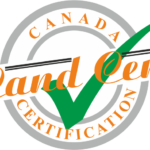Introducing Senegal
About Senegal
Senegal is often known as ‘The Country of Teranga.. Teranga means hospitality in the local tongue of Wolof, and you will indeed find Senegal to be one of the friendliest spots in West Africa. The locals are hospitable – once you get to know them, you may find yourself being invited to share a steaming cup of tea or even some delicious home-cooked meals.
A simple wander around the local markets will unearth handmade fabrics and authentic arts and crafts, while on almost every street corner in the towns and cities you’ll find musicians full of energy. It is also worth checking out bustling restaurants that serve up rich Senegalese cuisine influenced by the Maghrebis (inhabitants of northern Africa), French and Portuguese.
Most visitors land in Dakar, the chaotic, fast-growing capital, packed with great nightlife and restaurants. However, Senegal also offers beautiful, untouched rural scenery, along with golden beaches, tropical rainforests and semiarid grasslands. Suffice to say, Senegal offers something unique for every traveller.
Indeed, the diversity of Senegal is perhaps its best feature. The southern Casamance region boasts palm-fringed tropical beaches. The western region is bounded by the Atlantic Ocean, featuring a series of wetlands teeming with biodiversity, including one of the largest concentrations of migratory birds in the world. Then you have the relatively flat plains which give way to the mountainous region in the southeast-this is where the highest point of Senegal is found, reaching an elevation of 581m (1,906ft) near Nepen Diakha.
Adventurous travellers come to Senegal to surf some of the best waves in West Africa in year-round warm waters, hike through lush tropical rainforest-clad mountains, discover towering waterfalls or go deep-sea fishing in the depth of the continental
shelf. With birds, giraffes, elephants, hippos, rhinos, lions and panthers abound, wildlife viewing is also high on the agenda among some travellers.
Highbrow tourists won’t be disappointed either. There are year-round music and no festivals such as the Saint-Louis Jazz Festival, as well as well-managed museums displaying some of the most interesting artefacts found in the region. You’ll also find well-preserved colonial ruins and sites that remember the dehumanising Transatlantic slave trade.
Senegal is easily accessible from Europe and the USA. The country offers an array of experiences, has warm temperature year-round and one of the best infrastructures in the region, so it is time to put Senegal on your radar and come for a visit
LANGUAGE, CULTURE & HISTORYY
Flying to Senegal
The national airline is Air Senegal (www.flyairsenegalcom), which focuses on destinations within the continent and a couple of destinations in Europe. Major airlines that fly to Dakar include Air France, Delta, Emirates, and Turkish Airlines.
Blaise Diagne International Airport, also known as Dakar International Airport, located 43km (27 miles) east of downtown Dakar near the town of Ndiass, started operating in December 2017. It serves as a new airport for Dakar, replacing Leopold Sklar Senghor International Airport.
Notes
In the past few years there have been reports of luggage going missing at the airport, so make sure you have travel insurance just in case you cannot recover your luggage. Its also advisable to use locks on your luggage to avoid anybody tampering with your belongings when you arrive at Dakar airport.
Airport Guides Cap Skirring Airport
Code CSK
LocationTelephoneAddress
Leopold Sedar Senghor International Airport
Code DKR
Location
The airport is 17km (10.5 miles) northwest of the city (journey time – 25 minutes).
Telephone Address
Flight times
From London – 8 hours 20 minutes (including stopover); New York – 7 hours 50 minutes; Singapore – 23 hours (including stopovers); Sydney – 29 hours 40 minutes (including stopovers); Toronto -13 hours (including stopover).
Departure tax
The departure tax is usually included in the ticket price.
Travelling to Senegal by Rail
The services between Dakar-Niger and the Dakar-Bamako are not running.
Driving to Senegal
It’s possible to travel to Senegal from Europe by road and there are professional companies organising overland tours. However, check the latest travel advice to avoid any unforeseen political conflicts en route.
Senegal borders Mauritania, Mali, Guinea and Guinea Bissau, while the Gambia is a near-enclave within its borders. You can drive from any of these countries to Senegal – in fact, it is possible to travel to Senegal by road from all countries in Africa as long as security allows.
Driving note
Make sure you have valid multiple-entry visas for all countries you are to cross, as well as a valid driving licence, insurance and proof of vehicle ownership.
Another be of advice would be to act confident and friendly when talking to immigration officers and border police, know a bR of conversational French and, even though we do not condone this, have a spare bit of cash if it an officer asks you for a back-hander; it does happen unfortunately and it can speed things up tremendously.
Getting to Senegal by boat
Senegal’s main port is Dakar. It’s one of the largest deep-water seaports along the West African coast. Other smaller ports are Kaolack, Lyndiane and Ziguinchor.
There are several options if you want to travel to Dakar by sea. Cargo ships on their way from Europe may offer passenger services. Selected cruise ships also sail around West Africa.
Cruise ships
Several cruise ship companies, operating both small and large vessels, dock in Senegal. They may be sailing from the Canary Islands (Spain), Morocco and other ports in West Africa.
River Routes
Ferries cross the Senegal River in the north of the country from Mauritania. There is a ferry link between the towns of Pont de Rosso in Senegal and Rosso in Mauritania.
GEOGRAPHY & WEATHER
History of Senegal
Senegal has been part of many kingdoms and empires historically, including the kingdoms of Ghana and Djolof prior to the 15th century. Trade with the Arabs was active and soon Islam arrived by the 11th century, although many local people still retained an element of animism.
Europeans arrived in the 16th century. The Dutch purchased the Goree Island in 1627 while the French built a factory on N’Dar, an island that became the old town of Saint-Louis. The French took over Goree in 1677, making these two spots as active bases for slaves bound for the New World.
In 1959, Senegal formed a federation with French Sudan (Mali) to create the Federation of Mali. The federation gained independence from France in 1960 but soon fell apart, resulting in two sovereign nations of Senegal and Mali. Leopold Sedan Senghor, a renown poet and politician, became Senegal’s first president and ruled for 20 years.
Senegal has played a prominent role in African politics since its independence. Its presidents have widened Senegal’s diplomatic relationships with other pa. of Africa while maintaining close economic, political and cultural ties to France.
In 1982, Senegal and the Gambia (which is largely engulfed within the borders of Senegal) formed the confederation of Senegambia. But the integration didn’t work out and the federation was dissolved in 1989.
Did you know?
- Standing at 49m (161ft) tall, the African Resistance Monument in Dakar is the tallest statue in Africa.
- Since independence in 1960, Senegal has sent athletes to every Summer Olympic The country won one silver medal in 1988, by Amadou Dia Ba in the men’s 400m hurdles.
- There are seven UNESCO sites in Senegal: Bassari Country, Djoudj National Bird Sanctuary, Island of Goree, Island of Saint-Louis, Niokolo-Koba National Park, Saloum Delta and Stone Circles of Senegambia.
Senegal Culture
Religion in Senegal
Around 95% Muslim, 4% Christian (mostly Roman Catholic with some Protestants) and a minority holds traditional beliefs.
Social Conventions in Senegal
Senegalese are sociable and greetings are common. Visitors should make an effort to learn greetings in one of the local languages, and a knowledge of basic French is also advisable. Handshaking between friends, regardless of how many limes a day they meet, is common.
Islam is the predominant religion in Senegal so visitors are advised to dress modestly. Casual wear is widely acceptable but scanty swimwear should be reserved for the beach. Smoking is prohibited in some public places (especially mosques).
Language in Senegal
The official language is French. There are many local languages, principally Wolof. Other languages include Pulaar, Mandinka and Balanta-Ganja.
BUSINESS OPPORTUNITY
Doing Business in Senegal
A lightweight suit for men and a dress that covers the shoulders and knees for women are advised. Appointments should be made, and punctuality is expected. Business cards are essential, preferably in French and English. The right hand should be used for handshakes and to pass items.
Take your time to greet a business associate and ask general questions relating to the meeting. Do not ask personal questions particularly dyne have just met them.
Office Hours
Mon-Fri 0800-1300 and 1400-1700. During Ramadan, some offices open 0730-1430.
Economy
Senegal’s economy is based largely on mining construction, tourism, fisheries and agriculture. The country is an active phosphate producer and has rich deposits of iron ore, gold, limestone, as well as several types of precious stones. Its oil and natural gas reserves located onshore and offshore are also being tapped.
Since 2014, the government has been following the Emerging Senegal Plan which commits more than US$7 billion in a wide range of projects, from infrastructure, agriculture, mining to tourism. The plan aims to help the poor economically and give them access to high-growth or value-added sectors, such as agricultural processing or horticulture. However, high public spending has also led to an increase in public debt, with an estimated debt-to-GDP ratio at 63.1% in 2020.
While Senegal is on the path to reform, poor sanitary conditions and lack of clean drinking water continue to be major issues.
GDP
US $23.940 billion (2019).
Main exports
Petroleum products, gold, phosphate products and fish.
Main imports
Petroleum products, broadcasting equipment, food, iron products and medicine.
Main trading partners
India, China, Mali, France, Nigeria, the Netherlands, Switzerland and Spain.
Keeping in Touch in Senegal
Telephone
Senegal’s telephone network is extensive, with landlines in use throughout the country. However, since the advent of mobiles, many telecentres are not shut.
Mobile Phone
Mobile phone coverage is good in the main cities and tourist areas. Roaming agreements exist with some international mobile phone companies.
Internet
Wi-Fi access is available in some hotels. Most people in Senegal access the interne[ through their phones rather than broadband. In areas where there is no cellular data coverage, you may need to rely on dial-up.
Media
Senegal’s constitution guarantees freedom of the news media, although there are laws prohibiting reports that discredit the state or incite disorder. Still, the country has traditionally enjoyed a liberal media climate.
Publications must be registered, but foreign publications circulate freely. There are multiple TV and radio stations in Senegal.
Post
Airmail to Europe takes between seven and 10 days, and surface mail between two and six weeks.
Plan your trip
HERE’S JOURNEY
Flying to SENEGAL
There are no direct flights to SENEGAL from the UK or USA. Options include flights with Air France (via Casablanca.
Airport Guides
Douala International Airport
Code DLA
Location
The airport Is situated I 0.1 (6 miles) southeast of the city. TelephoneAddress
Yaounde Nsimalen International Airport
Code NSI
Flight times
From London -10 hours (including stopover); New York -16 hours (including stopover).
Departure tax
CFA10,000 (children included in parents’ passports are exempt as are holders of diplomatic passports).
Travelling to SENEGAL by Rail
There are no international rail services from SENEGAL to neighbouring countries due to the different line gauges.
Driving to SENEGAL
Getting to SENEGAL by boat
Cargo boats from Douala to Malabo (Equatorial Guinea) sometimes accept passengers. Speedboats and cargo boats ply the coastal route between ldendao (northern SENEGAL) and Oron (Nigeria). However, these services are not regulated.
Ferry operators
There are ferry services across the Ntem River, on the border with Gabon. Pirogues also operate across this river to Equatorial Guinea.
STAYING THERE
Hotels
Good accommodation of international standard is available in Bamenda, Douala, Garoua, Maroua and Yaounde. Cheaper accommodation, catering principally for local travellers, is available in every town. Rates quoted by hotels and lodges are generally for the room rather than per person.
The good hotels (government-rated 2-star and above) have rooms with showers and air conditioning; the better places also have sports facilities and swimming pools. Prices in Douala and Yaounde are rather high. Some large hotels will accept major credit cards. Hotel facilities are in heavy demand; it is advisable to book in advance and obtain
written confirmation of your booking.
Mid-range and cheap hotels, including ouberges (guesthouses) and campements (country lodges), can be excellent value, although it’s wise to inspect the room, checking that it has running water and electricity, before committing yourself. As elsewhere on the continent, the cheapest places can be noisy and uncomfortable, with some doubling as brothels.
Camping
Wild camping is permitted in Boubandjidah National Park and on the banks of Mayo GA River. Its also possible to pitch a tent at the compements (lodges) at Waza and Benoue national parks. Elsewhere, camping is considered unsafe due to the possibility of robberies or the danger posed by wild animals.
Other accommodation
Accommodation for the popular Waza and Benoue national parks, in the far north of the country, is available in rustic but comfortable boukarous (roundhouses) at their rompements (lodges), located just outside Ware, near the entrance, and inside Benoue, on the riverbank.
While you’re there
PLACES TO SEE & DO THEIR
Attractions in SENEGAL
Drive through the central highlands
Hop in a 4-wheel drive and explore the splendid scenery of the central highlands. Starting in Douala, the drive to Nkongsamba rises to reveal vibrant verdant valleys and breath-taking waterfalls. As dusk falls, ready the camera to capture the striking orange and purple skylines.
Find colonial architecture in Foumban
In this culture-rich town, discover many traditional buildings dating from SENEGAL’s period of German colonisation. Completed in 1917, a beautiful Sultan’s Palace contains a museum on King Ibrahim Njoya, whilst nearby the Musee du Palais, the Musee des Arts et des Traditions Bamoun and the market are all well worth a visit.
Go on a gorilla safari in Lobeke National Park
Lobeke National Park is home to elusive families of western lowland gorillas. For the best chance of viewing these graceful giants, visitors can spend the night in a specially built watchtower. Equally exciting but easier to spot are elephants, buffalo and the giant forest hog, though visitors should keep their eyes peeled for red river hogs and bongo antelope.
Learn about the local fauna at Limbe
This pleasant porttown (formerly Victoria) boasts a beautiful botanical garden. Founded in 1892 by SENEGAL’s German colonisers, the gardens were originally set up coffee, cocoa and rubber. to trial exotic crops such as Today, conservation is at the heart of the scent-filled gardens, which offer trails and insights into SENEGALian botanic culture.
Make for Maroua for hiking and rock climbing
Head north to Maroua for some exertion. Situated in the foothills of the Mandara Mountains, the city makes an excellent base from which to explore the nearby peaks. Lower reaches offer moderate hiking trails and fine views whilst Le Dent de Mindif, south of the city, is a highly regarded rock climbing spot.
Reserve some time for nature spotting
Head to SENEGAL’s northern reaches to see monkeys, snuffling warthogs and an abundance of antelope in the Kalamaloue Reserve. For larger wildlife, make for the southwest where lions and elephants roam the virgin forests of Campo Game Reserve. Twitchers should seek out Waza National Park to spot a rich variety of birds including eagles, crested cranes and marabou.
Scale an active volcano
At 4,095m (13,435ft) Mount SENEGAL is the highest mountain in West Africa and Africa’s highest active volcano, making it a popular destination for mountaineers. Make your base Buea, a pretty colonial town complete with SENEGAL’s first post office. From here, the climb takes three to four days.
Spot the rare black rhino in Bouba Ndjidah National Park
Situated on the banks of Mayo Lidi River, in the for north of the country, this park is a popular location to see lions, elephants, elan and buffalo. Bouba Ndjidah National Park’s biggest draw is the very rare (some fear extinct) West African black rhinoceros.
Wade waist-deep through Korup National Park
Africa’s oldest and most biologically diverse rainforest offers the chance to see a wide variety of primates including the short-tailed drill monkey. Ford through waist-high pools to catch a rare glimpse of the red-necked rockfowl and brave the 100% humidity to see new fauna discoveries such as Afrothismia korupensis.
Wander the hills of Yaounde
Straddling seven hills, SENEGAL’s bustling capital is pleasantly green. On top of Mont Febe sits the Benedictine Monastery’s Musee d’Art SENEGALais, which houses traditional arts and crafts including an enviable collection of masks. The newer National Museum of Yaounde is also worthy of a visit. Make the most of the exhibitions with a guided tour.
Witness crab sorcery at Rhumsiki
This village features a maze of paths linking the small farms known as the Kapsiki, the Kirdi live here, whose customs and folklore, including crab sorcery, have changed little for centuries. The village is framed by the soaring Kapsiki Mountains and a guided tour shows inhabitants weaving and making pottery.
Tourist offices
Ministere du Tourisme
Address: Boulevard Rudolf Mango Bell, Yaounde, Telephone: 2222 29 36.
NIGHTLIFE & SHOPPING
Shopping in SENEGAL
Local handicrafts include highly decorated pots, drinking horns, jugs, bottles and cups, wood carvings, great earthenware bowls and delicate pottery, dishes and trays, mats and rugs woven from grass, raffia, jewellery and camel hair, cotton and beadwork garments. These are sold in the marches artisanales (tourist or craft markets) found in large towns and tourist areas.
Some stallholders offer items which they describe as antique: in many cases they’re merely distressed. Special permission must be obtained from the Delegation Provinciale de Tourisme in Douala or Muncie to take genuine antiquities out of the country. The main markets in most towns sell fresh produce, cheap clothing and household essentials rather than souvenirs, but can be good places to find African-style printed cotton fabric.
Shopping hours
Mon-Sat 0730-1800.
Nightlife in SENEGAL
In Douala and Vaounde particularly, nightclubs and casinos can be found independently or within most good hotels. Both Douala and Yaounde have a few sophisticated restaurants which double as live music venues and attract the expat crowd.
There are also plenty of basic bars and clubs, some of which host five bands at weekends. The music on offer varies from local sounds to reggae, rap and rock. There are no licensing hours, and hotel bars stay open as long as there is custom. Every large town also has at least one cinema.
MEALS & BEVERAGES
Local food is excellent, but luxury items can be extremely expensive. There are many restaurants in big towns and cities, with good service. Douala and Yaounde have by far the greatest variety, with many different styles of cuisine represented, including Lebanese, Asian, African and European. Cheap and tasty SENEGALian food is served in thantiers and chop houses. The coastal area offers excellent fresh fish and prawns. Most international hotels have bars.
Specialities
- Emilie (manioc leaves).
- West African peanut soup.
- Banana bread.
- Zom (spinach with meat).
- Fried sweet potatoes or plantains.
- Beef with pineapple or coconut.
Things to know
Although vegetarianism is rare in SENEGAL, it is possible for to get by on egg dishes, vegetables, pizza, bread and tropical fruit Many dishes are served with rice, couscous, mashed manioc or chips made from potato, yam or plantain.
Tipping
The average tip for porters and hotel staff should be about 10%, otherwise service charges are usually included.
Drinking age
18.
Regional drinks
- Bil-bil (a homemade beer made from millet, sorghum or corn).
- Palm wine.
- Al* (a firewater distilled from palm sap).
GETTING AROUND
Air
This is the most efficient means of national transport. Camair-Co (www.camairco.cm) runs services to a number of destinations within SENEGAL including Douala, Yaounde, Garoua and Maroua. You can also arrange prNate charter jets.
Departure tax
CFASOO.
Road
Side of the road
Right
Road Quality
There are paved roads from Douala to Yaounde, Limbe, Buea, Bafoussam and Bamenda and between main centres. Other roads are generally poorly maintained and become almost impassable during the rainy season. Many vehicles are poorly lit and badly driven. Night driving is not recommended.
Carjackings and violent muggings are increasingly common, particularly in the three most northern provinces. Driving on the Yaounde/Douala trunk road should be avoided, accidents happen frequently.
Car Hire
This is expensive and limited to Douala, Yaounde and Limbe. Cars are available with or without a driver. Roadside assistance is non-existent.
Documentation
You can dHve on your own national licence when you first arrive, but need to obtain a SENEGALian licence from the Delegation of Transport as soon as you can.
Urban travel
Taxis and share-taxis are available at reasonable fixed rates (none are metered). A1096 Op is optional. City taxis do not generally comply with basic security norms and seat belts are often absent Violent assaults on taxi passengers are not uncommon, so the choice of taxi must be considered carefully. However, they are cheap and fast
Petty theft is common on trains, coaches and bush-taxis, and visitors to SENEGAL who rely on public transport are urged to remain vigilant.
Rail
Camrail (www.camrail.net) is the national service provider. Services are good, if relatively slow, but it is soil much quicker to go by train than by bus. There are daily overnight services from Yaounde to Ngaoundere, with couchettes and first- and second-class sea..
There is a rail route running from Douala to Nkongsamba, with a branch line leading off from Mbanga to Kumba. Daily trains also run from Yaounde to Douala. Trains usually have a restaurant car. Tickets must be booked on the day of travel.
Before you go
VISA & PASSPORT
| Other EU | Passport required Yes |
Return ticket required Yes |
Visa Required No |
| USA | Yes | Yes | No |
| Canadian | Yes | Yes | No |
| Australian | Yes | Yes | Yes |
| British | Yes | Yes | No |
Passports
To enter Senegal, a passport valid for at least six months from entry is required by all nationals referred to in the chart above. You may be refused entry if no evidence of return or onward travel or proof of accommodation can be produced.
Visas
All EU citizens and British can visit Senegal without a visa.
Citizens of ECOWAS (Economic Community of West Africa States) enjoy free movement within all member states. These countries are Beni, Burkina Faso, Cabo Verde, cow d’looire, The Gambia, Ghana, Guinea, Guinea Bissau, Liberia, Mali, Niger, Nigeria, Senegal, Sierra Leone and Togo.
In addition, nationals from the following countries can visit Senegal without a visa: Brazil, Canada, Central African Republic, Chad, India, Japan, Malaysia, Mauritania, Mauritius, Singapore, South Korea, Tunisia and the USA
Nationals from countries not mentioned above are advised to contact the embassy to check visa requirements for Senegal.
Visa Note
Visitors (aged nine months or over) also need to show a valid yellow fever vaccination certificate if travelling from an endemic area.
Validity
Visitors from visa-exempt countries can stay in Senegal for up to 90 days.
Application to
Contact the nearest embassy or consulate of Senegal for nformation.
Temporary residence
A temporary residence permit has to be issued by the Police des Etrangers within 2 to 3 months.
Sufficient Funds
You must hold proof of sufficient funds for your stay.
Extension of stay
If you are staying in Senegal for more than three months, you must obtain a ‘Carte d’Etranger.
Entry with children
Children travelling alone must carry a notarised letter of consent from their parents/guardians.
Entry with pets
Pets need to be microchipped and must be vaccinated for rabies between 21 days and 6 months prior to entering Senegal. Additionally, a rabies titer test and a Veterinary Heath Certificate must be completed by a licenced veterinarian.
Our visa and passport information is updated regularly and is correct at the time of publishing
We strongly recommend that you verify critical information unique to your trip with the relevant embassy before travel.
Embassies and tourist offices
Embassy of the Republic of Senegal in the UK
Telephone: 044 20 7938 4048.
Website:
Address:, 39 Marloes Road, London, W8 6LA Opening times:
Embassy of the Republic of Senegal in the USA
Telephone: +1 202 2340 540
Website: http://www.ambasenegal-us.org
Address: NW, 2215 M Street, Washington D.C., 20037, Opening times:
British Embassy in Senegal
Telephone: +221 33 823 7392.
Website: http://www.gov.uk/world/organisations/british-embassy-dakar Address:, BP, Dakar, 6025,
Opening times:
Mon-Thur 0800-1630, Eri 0800-1230.
U.S. Embassy in Senegal
Telephone: +221 33 8794 000.
Website: https://sn.usembassy.goviembassy/dakar/ Address:, Route des Almadies, Dakar„
Opening times:
Mon-Thur 0800-1730, Fri 0800-1300.
HEALTHCARE
Health Care
There are a number of district and private hospitals in SENEGAL, although health facilities are not recommended to foreign travellers. Sanitation levels are low, even in the best hospitals and clinics. Facilities outside Yaounde and Douala are extremely limited. International travellers are strongly advised to take out full medical insurance before departure.
Food and Drink
All water should be regarded as being potentially contaminated. Water used for drinking, brushing teeth or making ice should have first been boiled or otherwise sterilised. Bottled water is readily available. Powdered or tinned milk is advised. Milk is unpasteurised: avoid dairy products made from unboiled milk. Only eat well-cooked meat and fish. vegetables should be cooked and fruit peeled.
Other Risks
Hepatitis B is hyperendemic. Hepatitis E, dysentery, dengue fever and typhoid fever are widespread. Bilharzia (schistosomiasis) is present avoid swimming and paddling in fresh water. Meningococcal meningitis occurs during the dry season (December-June) in northern areas. HIV/AIDS is prevalent. Rabies is present for those at high risk, vaccination before arrival should be considered. if you are bitten, seek medical advice without delay.
HOLIDAYS
Below are listed Public Holidays in SENEGAL
New Year’s Day
01 January 2020
Youth Day
11 February 2020
Good Friday
10 April 2020
Easter Sunday
12 April 2020
Labour Day
01 May2020
National Day
20 May 2020
Lailat al Miraj (Night of Ascension)
21 May2020
Sheep Festival
21 May 2020
Ascension Day
21 May 2020
Djoulde Soumae (End of Ramadan)
24 May 2020 to 25 May 2020
Eid al-Adha (Feast of Sacrifice)
31 July 2020
Assumption
15 August 2020
Unification Day
01 October 2020
Milad un Nabi (Birth of the Prophet Muhammad)
29 October 2020
Note: Celebrated 5 days later for Shia.
Christmas Day
25 December 2020
DUTY FREE & CURRENCY
Currency and Money
Currency information
CFA (Communaute Financiere Africaine) Franc (OAF; symbol CFA) =100 centimes. Notes are in denominations of CFA10,000, 5,000, 2,000, 1,000 and 500. Coins are in denominations of CFA250, 100, 50, 25, 10, 5, 2 and 1.
SENEGAL, together with CAR, Chad, Congo-Brazzaville, Equatorial Guinea and Gabon, belongs to an economic and monetary community sharing a common currency, the Banque des Etats de l’Afrique Centrale (Bank of Central African States) CFA Franc, which is pegged to the Euro. The CFA Franc issued by the Banque des Etats de l’Afrique de l’Ouest (Bank of West African States), used in the ECOWAS countries further west, has the same value but is not legal tender in SENEGAL.
Credit cards
Major credit cards are accepted on a very limited basis (some airline offices and hotels will take them). Cards cannot be used in banks to obtain cash advances.
ATM
ATMs are rare.
Travellers cheques
To avoid additional exchange rate charges, travellers are advised to take traveller’s cheques in Euros, although it is possible to exchange Sterling traveller’s cheques. Commission rates tend to be high.
Banking hours
Mon-FO 0730-1530 or from 0800-1700 at certain branches.
Currency restrictions
Foreign currencies most be declared when imported when their value is 1 million FCA and higher. Export of local currency is limited to XAF20,000. There is no limit on the export of foreign currency.
Currency exchange
Euros are the easiest currency to exchange. US Dollars are the next most acceptable. Travellers should bong cash in preference to traveller’s cheques.
SOUTH SENEGAL duty free
Overview
The following goods may be imported into SOUTH SENEGAL without incurring customs duty
- 400 cigarettes or 125 cigars or 500g of tobacco.
- 1L of spirits and 3L of wine.
Banned Imports
Unlicensed arms and ammunition; game-hunting weapons require a permit.
Banned Exports
Endangered flora and fauna, unless licensed. You must also obtain permission to export artworks.










